Sometimes I find myself thinking if it is better to live in ignorant bliss or to know a few things about hair products. I’m sure many naturalistas and transitioners out there may feel the same way. Going natural forcibly entails knowing more about the nature of our hair and the products we use to care for it. Some will be very zealous about what they “feed” their hair while others not so much. Nevertheless, I believe there is a growing interest and preference in using natural ingredients over synthetic ones or, at the very least, knowing what we are using. My point is, I looked at the ingredients list of the much acclaimed Moroccanoil Restorative Hair Mask and I thought I could make my own mask without the “wacky” ingredients. I believe reading hair care product labels is very important. Want to know why?
The Product – Morocconoil Restorative Hair Mask
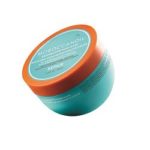 First of all, I would like to say that I am not claiming that this mask does not work, on the contrary. According to countless reviews on the net it is a wonderful addition to any hair care regimen. The Moroccanoil Restorative Hair Mask, is a mask meant to help repair even the inner structure of damaged hair with its formula rich in argan oil and vegetable protein. In other words, it works in the same way as a protein mask/deep conditioner, it improves the elasticity and strength of your hair.
First of all, I would like to say that I am not claiming that this mask does not work, on the contrary. According to countless reviews on the net it is a wonderful addition to any hair care regimen. The Moroccanoil Restorative Hair Mask, is a mask meant to help repair even the inner structure of damaged hair with its formula rich in argan oil and vegetable protein. In other words, it works in the same way as a protein mask/deep conditioner, it improves the elasticity and strength of your hair.
As it happens with any mask, it will work better for some people than others. This has to do with the health of your hair. If your hair is relatively healthy and doesn’t need much protein or nourishment then this mask may not me “8 Wonder of the World”. On the other hand, those with damaged hair will feel and see instant improvement upon using it. The proteins contained in the formula will fill in the holes and cracks on the hair strand making it more elastic and resistant to breakage. What’s not to love about this?
Any mask that makes my hair feel silky, smooth, moisturised, decreases breakage and increases its movement and bounce is a keeper in my bathroom shelf. However, looking at the ingredients list of the Moroccanoil mask there are only a few ingredients I recognise immediately and can say are natural.
Reading The Label
The interesting thing is that I found two different ingredients lists for this product as you can see in picture below. I believe they changed their formula to the one on picture 2. The first five ingredients listed in a product’s label are the most important ones because there will be a higher content of them in the formula. According to science blogger from the The Natural Haven Bloom, water accounts for 50% to 80% in shampoos, hair conditioners and leave-in conditioners. If you look again at the pictures, water if the first ingredient as it should be (natural curly hair is very thirsty!). However, if you look further than that, this mask will start to look more like a nourishing mask than a restorative one. On both formulas, the proteins (Hydrolysed Vegetable Protein/PG-Propyl Silanetriol) appear long after the magic number five in the ingredients list.

You will notice that in picture number 1 there is water, argan oil, canola oil and shea butter within the first five which is not bad. In picture number two however, there is only water and canola oil and the staple ingredient in the Moroccanoil product line, argan oil, comes in ninth place. Moreover, another key ingredient in this mask is the Caryocar Brasiliense Fruit (Pequi) Oil which comes in eighth (picture 1) and thirteenth place (picture 2). So the chances of this mask having these oils (argan and pequi) in a quantity that would benefit your hair are small. So why is this mask raved by so many?
I believe it’s the mixture of the natural and the “not so natural” ingredients. They were able to create a product with a formula that pleases many. Within the “not so natural” part of the formula there are various conditioning, emollient, anti-static/frizz free and emulsifying agents as well as penetrating enhancers (Cetearyl Alcohol & Ceteareth-20) with the latter scoring moderate to high health concern by Environmental Working Group (EWG). Additionally, Morocconoil is a professional line, the ingredients in these product lines are supposed to me more concentrated therefore, by using this mask you are supposed to notice immediate results, thus why the penetrating enhancers. Is this why they are so expensive?
Yes, I believe that is one of the reasons why you have to fork a bit more money for professional products. In this specific case, the staple ingredient in Morcconoil products is the Argan oil. This oil, only found in Morocco, comes from the kernels of the argan tree and is, for the most part, still produced by hand by women’s co-operatives making this a laborious and time consuming process. Increased interest in this oil, means that the supply is not able to keep up with demand, which also means increased price at least for the real 100% argan oil. Don’t be fooled, there is no cheap argan oil! If the price is much cheaper, you’re probably buying some sort of blend with vegetable oils and/or a few other ingredients.
Another Case Study- Morocconoil “Moroccon Oil”
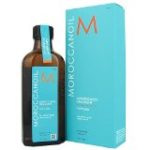 If you look at the brand’s Moroccan Oil, you will see that the first two ingredients of the product are silicones, then comes argan oil. The other ingredients in the list are perfume, linseed/flaxseed oil extract, a synthetic fragrance with floral scent (butylphenyl methylpropional), a fragance and viscosity reducer (benzyl benzoate), another synthetic fragrance (alpha-isomethyl ionone) and two different colorants. So, you are not getting the full 100% argan oil you think you’re buying!
If you look at the brand’s Moroccan Oil, you will see that the first two ingredients of the product are silicones, then comes argan oil. The other ingredients in the list are perfume, linseed/flaxseed oil extract, a synthetic fragrance with floral scent (butylphenyl methylpropional), a fragance and viscosity reducer (benzyl benzoate), another synthetic fragrance (alpha-isomethyl ionone) and two different colorants. So, you are not getting the full 100% argan oil you think you’re buying!

Additionally, if you have animal and health concerns there are a few ingredients that the EWG and PETA (People for the Ethical Treatment of Animal) have signaled. Two ingredients on the label(butylphenyl methylpropional and benzyl benzoate) are “possible human immune system toxicant or allergen” and the two colorants may be animal derived according to PETA. So, is Morocconoil’s Moroccon Oil a bad product?
Not at all, despite being mixed with silicones which coat the hair strand and create build up, silicones are not the evil enemy. They are very good at avoiding frizzy hair, laying the cuticle layers of the hair flat making it feel soft and smooth, and more importantly preventing damage from heat usage. As long as you limit its use and remember to clarify your hair to remove build up, you’ll be OK.
As for the use of synthetic ingredients, I believe they offer the industry less costs with similar results for the consumer. Any health concerns will be disputed by the industry claiming that the quantity and use restrictions for the ingredients are kept at the recommended concentrations, thus posing minimum or no risk for consumers.
The final call is yours. Do you wan to buy these products that are widely praised consumers and professionals, offer you some apparent good results but don’t give the full benefits of the ingredients they advertise, are “diluted” within others and are highly priced? Or, would you rather have the full benefits of the ingredients with less or no concoctions?
My Thoughts
As I said in my Natural Hair Product Ingredients post, information is key. When you have the information you can make better informed decisions. I’m not saying “Go natural all the way!”, what I am saying is if you don’t want to do this “choose where you can compromise”. If you think you can’t find a better alternative for X, Y or Z product because it’s the only one on the market that gives you the results you want, then go ahead and buy it! However, if you think you can find/make a better alternative with better ingredients and results then go spend your money somewhere else.
I prefer to buy products that are the closest possible to 100% natural and whenever I can I make them myself. I do this for my shea butter hair cream, my body cream, my leave-in and I also make my hair gel occasionally. Stay tuned for the next posts as I will share with you a few recipes and remember read your hair care product labels.
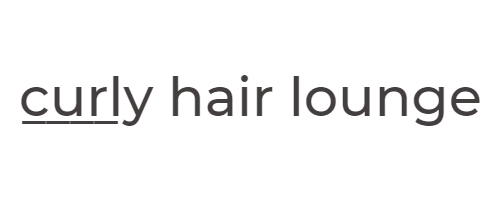
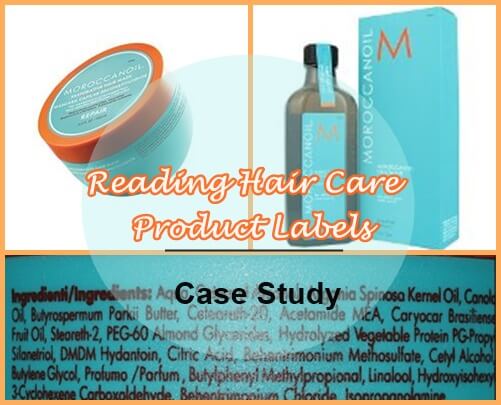
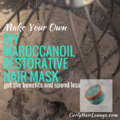
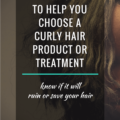
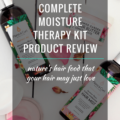

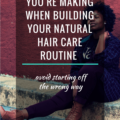
12 thoughts on “Reading Hair Care Product Labels – A Case Study”
I will look at the ingredients from now on! I tend to buy what I like and what smells good. Would like to go more natural with my hair products. You are right , you do have to pay more for pro products. I really need to though. During the summer, my hair goes crazy. I need something to settle it down!
Hello Liz, you need to take preventive measures so your hair won’t go all crazy during summer. You need to protect your form the harsh winter cold and wind. Make sure your hair is always moisturised, deep condition and use a hat, scarf or beanie to protect from the sold.
Thanks for bringing awareness to this topic. I definitely read my labels. And body care/ hair care products can be pretty scary sometimes. I feel like we’re sort of forced to more than ever these days especially since so many products have a LONG list of ingredients. My rule is if you can’t make it yourself or don’t want to look for something with as few identifiable, healthy ingredients as possible.
I do appreciate your approach though, and tend to approach things the same way, you have to offer people options for different lifestyles. What works for one doesn’t work for all. Ultimately you have to do what’s right for you 🙂
Yes, Jess. We have to be aware to what we are pouring down our bodies. You’re wright, the fewer unidentifiable ingredients the best, that is a good rule if you don’t want to be making or dodging specific/all synthetic ingredients.
This is really interesting! I constantly read labels, especially when it comes to food, but haven’t spent that much time on hair care products. I usually make my own and I use pure argan oil on my hair. I find it better than trying to find a little of it in any given product.
But you are absolutely right. Information is everything. So thank you for sharing some great information on how to read these labels.
Hi Sarah, I normally read labels on everything. If I can’t pronounce/identify many or most of the names then I’m not interested. Now that I’m more aware of this issue I am surprise at the amount of bad questionable stuff we have out there.
Hi, I have been using from time to time Moroccon Oil, it does protect the hair from splitting and clear the build up. But I think it smell too strong. I agree with you natural products toxic free are the best. Too much synthetic not only cause to lose hair but will also cause grey hair to not absorb colorants. Which brand of colorant would you recommend for 100% grey coverage?
Hi Lorren,
As I said in the post the Morroccanoil mask will work better, or not, depending on the condition of your hair. The mask has ingredients that will help your hair if it’s damaged, however I do prefer more natural ingredients. As for grey hair coverage the only thing I could advise you to use is Henna, because that is what I use. If you want more information read my Henna article and if you like it you can try my own recipe.
Hi Ana,
Thank you for this helpful reminder. I am always a label reader when it comes to food products but I haven’t given much thought when it comes to shampoo. I think it’s because they are all strings of chemical words and I take for granted that the product ‘knows what it is talking about’.
I need to become more familiar with these words to know exactly what natural product I am buying (or not) from the shelf.
Hello Cathy,
Glad you found this helpful. Yes it’s true, we all rely on the brand to know what it’s doing and sometime we, the consumer, end up being betrayed by them. As for the unpronounceable chemical words it takes some time to get familiar with them, and for me the more foreign words a product has the less I am interested in buying it. The first 5 ingredients in a product are the most important and with the Morocconoil products most of the good ones come way down the list. So, we should pay attention.
Hi Monica! Great to see another article from you again.
This time your emphasis is on reading product labels. And I definitely think it is imperative that anyone who looks to buy any hair care product, should look at the ingredients. This ensures that you are aware of what exactly you are “feeding” to your hair.
However, I just want to know how to go about choosing between a 100 percent “natural” product, and a mixed one? How do we find out if either one of them would benefit us more? Is it just a matter of trial and error?
Thanks and all the best!
Hi, Farhan! There is a very simple rule in choosing 100% natural ingredient and one with chemicals, if you can’t read all or most of the ingredients then you know they’re not natural. However, I am not advocating you should go 100% natural, what I am saying is that people should be aware of what’s in their products and then decide what they want. Maybe try to make sure the first five or most of the ingredients, in your products. are natural ones. Also, try to avoid mineral oil, petrolatum, drying alcohols and sulphates. Read >this article< to get an idea.